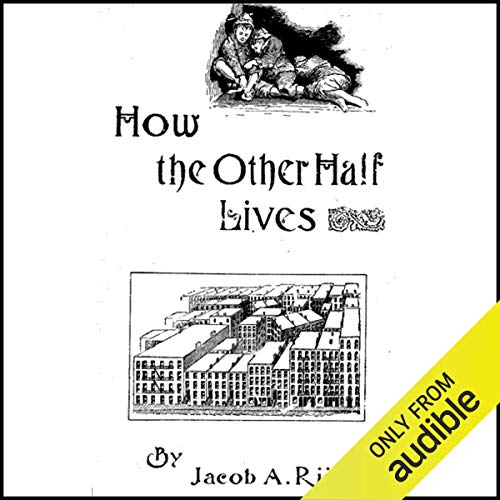
How the Other Half Lives
Artikel konnten nicht hinzugefügt werden
Der Titel konnte nicht zum Warenkorb hinzugefügt werden.
Der Titel konnte nicht zum Merkzettel hinzugefügt werden.
„Von Wunschzettel entfernen“ fehlgeschlagen.
„Podcast folgen“ fehlgeschlagen
„Podcast nicht mehr folgen“ fehlgeschlagen
Nur 0,99 € pro Monat für die ersten 3 Monate
 Bist du Amazon Prime-Mitglied?
Bist du Amazon Prime-Mitglied?Audible 60 Tage kostenlos testen
Für 20,95 € kaufen
-
Gesprochen von:
-
Danny Campbell
-
Von:
-
Jacob Riis
Über diesen Titel
How the Other Half Lives was a pioneering work of photojournalism by Jacob Riis, documenting the squalid living conditions in New York City slums in the 1880s. It served as a basis for future muckraking journalism by exposing the slums to New York City's upper and middle class. How The Other Half Lives quickly became a landmark in the annals of social reform. Riis documented the filth, disease, exploitation, and overcrowding that characterized the experience of more than one million immigrants. He helped push tenement reform to the front of New York's political agenda, and prompted then-Police Commissioner Theodore Roosevelt to close down the police-run poor houses. Roosevelt later called Riis "the most useful citizen of New York". Riis's idea inspired Jack London to write a similar expos on London's East End, called People of the Abyss.
Public Domain (P)2009 Audible, Inc.Beschreibung von Audible
Narrator Danny Campbell beautifully illustrates this blunt and righteous text. Photojournalist and consciousness objector Jacob Riis unearthed the plight of New York slum dwellers in the 1880s via brutally honest photography. He was a pioneer of art in the cause of social justice. He also wrote singeing indictments of the other half, the people of privilege who are indifferent to and often profit from the misery of the poor. His criticism is specific to the New York of that time, but on a broader note it highlights the legacy of inequity among mankind. Riis is not the dispassionate witness; he is deeply committed to shaming those who pretend ignorance of inequity. Campbell’s quietly angry voice shares Riis’ turbulent emotions, which range from outrage to grief.



